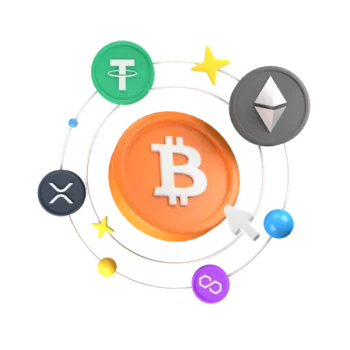Futures Contract
Futures contracts allow investors to buy or sell assets at a predetermined price in the future.
What is a Futures Contract?
A futures contract is a legally binding agreement between two parties to buy or sell an asset at a specific price on a future date. The asset could be anything from agricultural products to precious metals, or financial instruments like stock indices and currencies. These contracts are standardized and traded on futures exchanges.
The two primary types of futures contracts are:
- Commodity Futures Contracts – Deals with physical goods such as gold, oil, and agricultural products.
- Financial Futures Contracts – These include stock market indexes, government bonds, and currencies.
How Do Futures Contracts Work?
Futures contracts operate on a principle called leverage, which allows investors to control large positions in assets with a relatively small capital investment.
For example, imagine you’re purchasing a futures contract for 100 barrels of oil at $70 per barrel with a margin of $2,000. While the total value of the contract is $7,000, you only need to deposit $2,000 as collateral. This leverage allows for higher potential returns but also amplifies risks.
Key Components of a Futures Contract:
- Contract Size: Specifies the amount of the asset you are purchasing or selling.
- Expiration Date: The date when the contract expires, and the transaction must occur.
- Settlement Price: The price agreed upon when the contract is entered into.
- Margin Requirement: The deposit required to open and maintain a futures position.
Why Are Futures Contracts Used?
Futures contracts serve two primary purposes for investors: speculation and hedging.
Speculation
Speculators use futures contracts to bet on the price movement of an asset. If they believe the price of an asset will increase, they can buy a futures contract, and if they predict a decrease, they sell. This can result in large profits or significant losses.
Hedging
Futures are often used by businesses to hedge against price fluctuations in the market. For example, a farmer may use a futures contract to lock in a price for their crops months before harvest, protecting against the risk of price drops.
Key Benefits of Futures Contracts for Investors in 2024
Investing in futures contracts can provide several advantages for seasoned investors, including:
Leverage for Greater Profits
Futures contracts allow for the control of a large amount of an asset with a relatively small upfront investment. This leverage can result in higher returns on investment.
Diversification of Portfolio
By adding futures contracts to your portfolio, you can diversify your risk across different asset classes, including commodities and indices that might otherwise be difficult to access.
Risk Management and Hedging
Futures contracts can be a valuable tool for hedging against potential losses from market fluctuations, providing security against price volatility.
Liquidity
Futures markets are known for their high liquidity, making it easier to enter and exit positions without significantly affecting market prices.
Transparency and Regulation
Futures contracts are traded on regulated exchanges, which provide transparency and ensure that both parties adhere to the contract terms.
Futures Contracts in Action: Example and Calculation
Let’s consider an example of a futures contract in action:
Suppose you’re interested in purchasing a futures contract for 500 barrels of crude oil at $75 per barrel with a margin requirement of 10%. The total value of the contract is:
500 barrels × $75 per barrel = $37,500
With a margin requirement of 10%, the amount you need to deposit upfront is:
$37,500 × 10% = $3,750
If the price of oil rises to $80 per barrel at the expiration of the contract, the profit would be:
500 barrels × ($80 – $75) = $2,500
This example highlights how futures contracts work and the potential for profits.
Risks of Trading Futures Contracts
While futures contracts can be profitable, they also carry risks. These include the possibility of significant losses due to the use of leverage. Investors should be prepared to manage their positions carefully and use risk management strategies such as stop-loss orders to minimize potential downsides.
Should You Invest in Futures Contracts in 2024?
Futures contracts offer significant potential benefits, including the ability to profit from price fluctuations and diversify your investment portfolio. However, they also come with considerable risks. Before diving into futures trading, it’s important to understand the mechanics of these contracts and to carefully assess your risk tolerance.
If you’re looking to explore new opportunities, futures contracts could be a useful tool in your investment arsenal. As with any financial strategy, proper education and risk management are key to success.








